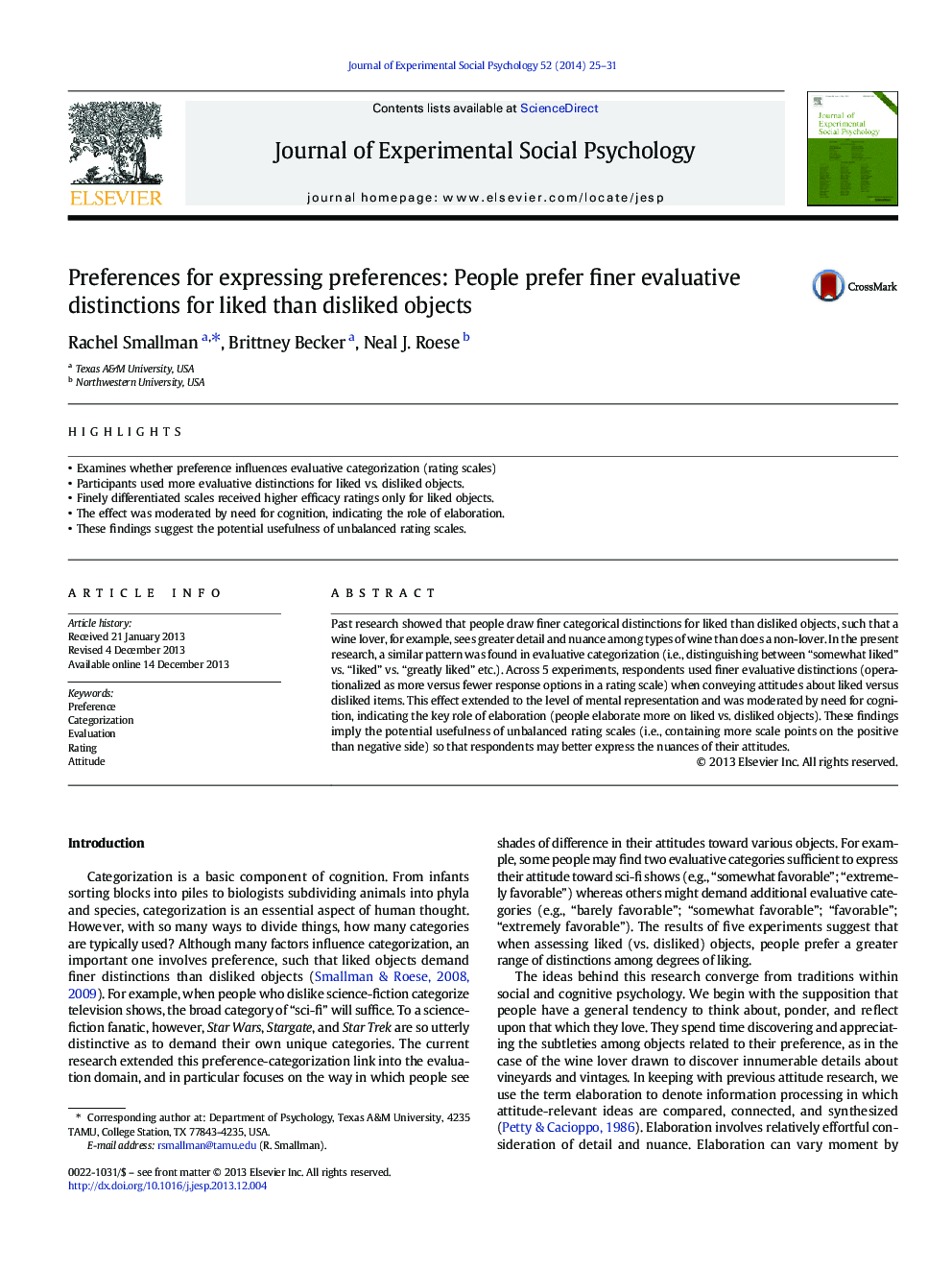| کد مقاله | کد نشریه | سال انتشار | مقاله انگلیسی | نسخه تمام متن |
|---|---|---|---|---|
| 947757 | 1475871 | 2014 | 7 صفحه PDF | دانلود رایگان |
• Examines whether preference influences evaluative categorization (rating scales)
• Participants used more evaluative distinctions for liked vs. disliked objects.
• Finely differentiated scales received higher efficacy ratings only for liked objects.
• The effect was moderated by need for cognition, indicating the role of elaboration.
• These findings suggest the potential usefulness of unbalanced rating scales.
Past research showed that people draw finer categorical distinctions for liked than disliked objects, such that a wine lover, for example, sees greater detail and nuance among types of wine than does a non-lover. In the present research, a similar pattern was found in evaluative categorization (i.e., distinguishing between “somewhat liked” vs. “liked” vs. “greatly liked” etc.). Across 5 experiments, respondents used finer evaluative distinctions (operationalized as more versus fewer response options in a rating scale) when conveying attitudes about liked versus disliked items. This effect extended to the level of mental representation and was moderated by need for cognition, indicating the key role of elaboration (people elaborate more on liked vs. disliked objects). These findings imply the potential usefulness of unbalanced rating scales (i.e., containing more scale points on the positive than negative side) so that respondents may better express the nuances of their attitudes.
Journal: Journal of Experimental Social Psychology - Volume 52, May 2014, Pages 25–31
